Media Coverage

Business Insider
A traditional MBA is a two-year commitment — or more if completed while also working part or full time — and can be costly. Prestigious programs like Stanford and Harvard, ranked No. 1 and No. 5 in the world respectively, can charge up to $120,000 for full tuition.
If spending the extensive time and money to go to business school doesn't pique your interest, but you're still intrigued by the value an MBA can have for your career, there's another option: the "mini MBA."
If spending the extensive time and money to go to business school doesn't pique your interest, but you're still intrigued by the value an MBA can have for your career, there's another option: the "mini MBA."

NJTV News
“Supply chains will inevitably shrink because there’ll be greater risk aversion. That doesn’t necessarily mean that jobs will all rush back to the United Staes. But instead of, let’s say, China, they may go to Vietnam or India,” said Farok Contractor, who teaches international business at Rutgers Business School.
He continued, “And diversification could mean companies bringing production back to the United States to some extent. So also what that means, inevitably, is an increase in costs to consumers.”
He continued, “And diversification could mean companies bringing production back to the United States to some extent. So also what that means, inevitably, is an increase in costs to consumers.”

Zero Hedge
Several US colleges with multi-billion dollar endowments have been tapping into the massive coronavirus stimulus passed by Congress and signed into law by President Trump in January.
As part of the $2 trillion Coronavirus Aid, Relief and Economic Security Act (CARES), $14 billion was set aside to support higher education institutions - ostensibly those without billions already in the bank.
Hilariously, Harvard's Crimson points to the risk that their endowment could shrink due to market volatility and that the University's financial situation is "grave." On the other hand - buried halfway through the article, Rutgers Business School professor John Longo points out that "it is conceivable that Harvard's market neutral and long/short hedge funds actually delivered positive returns," adding "If this is the case, it would materially soften the blow from the sharp drop in equities from around the world."
As part of the $2 trillion Coronavirus Aid, Relief and Economic Security Act (CARES), $14 billion was set aside to support higher education institutions - ostensibly those without billions already in the bank.
Hilariously, Harvard's Crimson points to the risk that their endowment could shrink due to market volatility and that the University's financial situation is "grave." On the other hand - buried halfway through the article, Rutgers Business School professor John Longo points out that "it is conceivable that Harvard's market neutral and long/short hedge funds actually delivered positive returns," adding "If this is the case, it would materially soften the blow from the sharp drop in equities from around the world."

The Hill
BY RICHARD SCHMALBECK AND JAY SOLED, OPINION CONTRIBUTORS
By design, taxes are a shared enterprise. They are not the undertaking of a single person. We cannot build bridges, support the military, or battle any pandemics by ourselves. The same is true for taxes. A functioning society requires every person to be a team member, obligated to participate in its civic duties and responsibilities. The government needs to be funded in a manner mutually agreed upon by Congress and the people, based on the principles of fairness and ability to pay. Taxes are a collective obligation, and their payment marks one of our civic duties as Americans.
By design, taxes are a shared enterprise. They are not the undertaking of a single person. We cannot build bridges, support the military, or battle any pandemics by ourselves. The same is true for taxes. A functioning society requires every person to be a team member, obligated to participate in its civic duties and responsibilities. The government needs to be funded in a manner mutually agreed upon by Congress and the people, based on the principles of fairness and ability to pay. Taxes are a collective obligation, and their payment marks one of our civic duties as Americans.

Thrive Global
As a part of my series about “How to Slow Down To Do More” I had the pleasure to interview Alina Trigub. Alina was born and immigrated from what used to be the Soviet Union, now Ukraine.
Alina was twenty years old when her family decided to immigrate to the United States to escape growing anti-Semitism in the Ukraine. Alina’s story is really a glowing example of the “Pursuit-of-the-American-Dream” tale. At twenty years of age, Alina knew that she was not entitled to anything except an adventure, and that in order to succeed she had to work hard and learn harder. She pursued a Bachelor degree in Accounting from Baruch college in NYC, while working as a sales person in a nearby busy clothing and shoe store. Upon graduation, Alina joined Ernst & Young as a tax accountant, and a few years later she graduated from Rutgers Business School with MBA in Finance and Management while working full time in the Technology company. Alina was excited to be granted a Green Card after arriving in the US, and five years later she was ecstatic to pass the test to become a US Citizen. Alina is proud to be an American, and she shares a strong work ethic with her husband of nearly twenty years that both passed on to their two children. Alina has been working in the Information Technology field for many years after leaving Tax Accounting world. A little over a year ago she started her own company, SAMO Financial. It is a boutique private equity firm specializing in the commercial real estate.
Alina was twenty years old when her family decided to immigrate to the United States to escape growing anti-Semitism in the Ukraine. Alina’s story is really a glowing example of the “Pursuit-of-the-American-Dream” tale. At twenty years of age, Alina knew that she was not entitled to anything except an adventure, and that in order to succeed she had to work hard and learn harder. She pursued a Bachelor degree in Accounting from Baruch college in NYC, while working as a sales person in a nearby busy clothing and shoe store. Upon graduation, Alina joined Ernst & Young as a tax accountant, and a few years later she graduated from Rutgers Business School with MBA in Finance and Management while working full time in the Technology company. Alina was excited to be granted a Green Card after arriving in the US, and five years later she was ecstatic to pass the test to become a US Citizen. Alina is proud to be an American, and she shares a strong work ethic with her husband of nearly twenty years that both passed on to their two children. Alina has been working in the Information Technology field for many years after leaving Tax Accounting world. A little over a year ago she started her own company, SAMO Financial. It is a boutique private equity firm specializing in the commercial real estate.

USA Today
One hitch: It may take a while for anxious parents to shake off their fears and stop buying more than they need when they spot formula for sale online and off, says Rudolf Leuschner, associate professor of supply chain management at Rutgers Business School.
“As soon as there is some supply, customers keep buying it all up,” Leuschner says. “Even if manufacturers are trying to raise production, it may not be that easy because they may have to produce more of their other products as well. There is only so much you can raise production.”
“As soon as there is some supply, customers keep buying it all up,” Leuschner says. “Even if manufacturers are trying to raise production, it may not be that easy because they may have to produce more of their other products as well. There is only so much you can raise production.”

Foreign Policy News
We all grieve; we are all angry; we are all confused; and we are all uncertain where this ends. For me, there is a special connect. For the past 10 years I have spent two months each year, in Bergamo, Italy lecturing at their university. I have fallen in love with the Lombardy region, its people and never had a moment when I wasn’t adoring of its culture, food and way of life. Now, I cry for my friends in Bergamo and wonder of their future, wonder what this all means for Italy and ponder long-term what its fate will be. I am puzzled when trying to figure out how this proud and spectacular country can pull out of its misery and return to normalcy. I am reminded that when Florence and its art world was inundated with a destructive flood and damage, US charity came to its aid. Now, what can the US do to help restore Europe’s confidence and well-being.
Jerry M. Rosenberg is Professor Emeritus of International Business at Rutgers University and author of several books on the 1948 Marshall Plan. He is presently writing a book on Coronavirus and A New US-European Marshall Plan.
Jerry M. Rosenberg is Professor Emeritus of International Business at Rutgers University and author of several books on the 1948 Marshall Plan. He is presently writing a book on Coronavirus and A New US-European Marshall Plan.

NJTV News
The U.S. economy’s deteriorating health was evident Wednesday in new reports that showed steep drops in retail sales, regional manufacturing and homebuilder sentiment.
Big banks are now setting aside billions of dollars to cover an expected increase in bad loans. While Congress continues to mull over additional emergency funding for smaller businesses, the Trump administration has reached a tentative deal with the airline industry on a $25 billion bailout.
Farrokh Langdana, professor & Executive MBA program director speaks with Rhonda Schaffler (video).
Big banks are now setting aside billions of dollars to cover an expected increase in bad loans. While Congress continues to mull over additional emergency funding for smaller businesses, the Trump administration has reached a tentative deal with the airline industry on a $25 billion bailout.
Farrokh Langdana, professor & Executive MBA program director speaks with Rhonda Schaffler (video).

Yahoo Finance
Americans are applauding the Internal Revenue Service’s extension of Tax Day to July 15 as confirmed cases of the new coronavirus, or COVID-19, reach nearly 600,000 cases in the U.S.
And Americans may see more tax changes ahead after the global pandemic subsides, Todd Simmens, Rutgers Business School Professor, told Yahoo Finance’s On The Move last week.
“There is interest in both parties in doing continued tax legislation, there always is ... I think that even before the pandemic, the administration was talking about additional cuts,” he said.
And Americans may see more tax changes ahead after the global pandemic subsides, Todd Simmens, Rutgers Business School Professor, told Yahoo Finance’s On The Move last week.
“There is interest in both parties in doing continued tax legislation, there always is ... I think that even before the pandemic, the administration was talking about additional cuts,” he said.
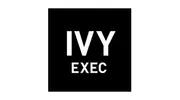
Ivy Exec
Rutgers Executive MBA
This well-regarded program was ranked #2 by the Financial Times in 2019 for economics and #5 by the Financial Times for Corporate Social Responsibility. The program lasts 20 months and offers weekend-based scheduling, in addition to an experiential session abroad. The Rutgers EMBA focuses on practical learning with immediate applications to today’s market and students’ day-to-day work, but they also design the curriculum to address business management at every stage of growth.
This well-regarded program was ranked #2 by the Financial Times in 2019 for economics and #5 by the Financial Times for Corporate Social Responsibility. The program lasts 20 months and offers weekend-based scheduling, in addition to an experiential session abroad. The Rutgers EMBA focuses on practical learning with immediate applications to today’s market and students’ day-to-day work, but they also design the curriculum to address business management at every stage of growth.
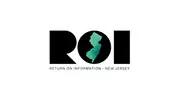
ROI-NJ
Business leaders, experts weigh in — say ability to empathize, communicate make females better crisis managers
At a time when women are still fighting to get equal pay and equal recognition in the everyday workplace, some women said they feel some common gender stereotypes — such as women having more empathy and better communication skills — help position women to be better crisis managers.
Lisa Kaplowitz, the director of the Center for Women in Business at Rutgers University and a professor of finance and economics, feels that way.
“Those skills are needed in a time of crisis,” she said. “One of the biggest things that any leader needs to do right now is be transparent and be empathetic to their team members, because anxiety and uncertainty are heightened during a time of crisis. The more that you can alleviate those concerns, the more you’re going to be able to then get people to perform.”
Women have been battling for an equal opportunity since the beginning of time. Literally, the beginning of time.
At least, that’s the feeling of Kristina Durante, a research professor at the Rutgers Business School who has done studies on gender differences.
“Women have some personality qualities that help in times of crisis,” she said. “They’re more empathetic and they have higher levels of nurturance. That’s just the gender difference that exists, and it has existed across thousands of years of human history.
At a time when women are still fighting to get equal pay and equal recognition in the everyday workplace, some women said they feel some common gender stereotypes — such as women having more empathy and better communication skills — help position women to be better crisis managers.
Lisa Kaplowitz, the director of the Center for Women in Business at Rutgers University and a professor of finance and economics, feels that way.
“Those skills are needed in a time of crisis,” she said. “One of the biggest things that any leader needs to do right now is be transparent and be empathetic to their team members, because anxiety and uncertainty are heightened during a time of crisis. The more that you can alleviate those concerns, the more you’re going to be able to then get people to perform.”
Women have been battling for an equal opportunity since the beginning of time. Literally, the beginning of time.
At least, that’s the feeling of Kristina Durante, a research professor at the Rutgers Business School who has done studies on gender differences.
“Women have some personality qualities that help in times of crisis,” she said. “They’re more empathetic and they have higher levels of nurturance. That’s just the gender difference that exists, and it has existed across thousands of years of human history.
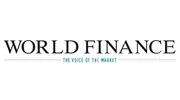
World Finance
Sears is an extreme but characteristic example of what economists aptly call a ‘zombie’ company – an organization that is unable to finance its debt with profits for an extended period.
In many cases, what keeps zombie economies alive is political pressure. Arthur Guarino, an associate professor of professional practice at Rutgers Business School, told World Finance: “If left to free-market economic principles and ideas, many of these companies – perhaps 50 percent or more – would fail, resulting in high amounts of unemployed people.” For retailers, though, bailouts are out of the question. As Cohen explained: “Unless you are a farmer receiving billions of dollars [from US President Donald Trump’s] tariff-driven disruption payments, workers losing their jobs are out of luck.”
In many cases, what keeps zombie economies alive is political pressure. Arthur Guarino, an associate professor of professional practice at Rutgers Business School, told World Finance: “If left to free-market economic principles and ideas, many of these companies – perhaps 50 percent or more – would fail, resulting in high amounts of unemployed people.” For retailers, though, bailouts are out of the question. As Cohen explained: “Unless you are a farmer receiving billions of dollars [from US President Donald Trump’s] tariff-driven disruption payments, workers losing their jobs are out of luck.”

Advisor News
New Jersey venture capital activity has been healthy, but the COVID-19 pandemic could change that, at least temporarily, according to some experts.
Early- or seed-stage companies, which are typically funded by angels and smaller VC firms are particularly likely to feel a pinch, according to Gary Minkoff, an instructor of professional practice at the Rutgers Business School Department of Management & Global Business. “Based on the uncertainties created by the coronavirus, these investors are likely to feel and it’s my understanding this is exactly what’s happening that it’s time to move to the sidelines, or buy bonds, or even hard assets like gold.”
Early- or seed-stage companies, which are typically funded by angels and smaller VC firms are particularly likely to feel a pinch, according to Gary Minkoff, an instructor of professional practice at the Rutgers Business School Department of Management & Global Business. “Based on the uncertainties created by the coronavirus, these investors are likely to feel and it’s my understanding this is exactly what’s happening that it’s time to move to the sidelines, or buy bonds, or even hard assets like gold.”

The Harvard Crimson
John M. Longo, a professor at Rutgers Business School, said he approved of Harvard’s decision to issue bonds given current interest rates. The Federal Reserve cut its baseline interest rate range to 0 to 0.25 percent in mid-March.
“It is smart for an institution like Harvard, with a stellar credit rating, to issue debt with interest rates across the entire maturity spectrum near all-time lows,” Longo wrote in an email.
“It is smart for an institution like Harvard, with a stellar credit rating, to issue debt with interest rates across the entire maturity spectrum near all-time lows,” Longo wrote in an email.

Yahoo Finance
Todd Simmens, tax risk management partner with BDO USA and adjunct professor with Rutgers Business School, Accounting & Information Systems, joins Yahoo Finance’s "On The Move" to address the impact of the coronavirus on taxes.

NJ.com
“Regardless of whatever contingency a company puts into place, there’s still a limited amount,” said William McLaury, a supply chain management professor at Rutgers University, who previously served as the executive director of pharma supply chain for Novartis Pharmaceuticals. “If this were to go on for three months, six months, nine months, [backups] will run out. It’s a limited supply. There might be enough, but to say there’s never going to be a problem is probably unrealistic.”

eHealthcare
We are living in a world already changed. Unlike even 60 days ago, we face a new imperative to embrace social distancing to save lives and preserve clinical capacity. If history has taught us anything, it’s that times of crisis drive innovation. Crisis helps overcome the inertia of the status quo. New solutions emerge, and are embraced as proven new patterns of care.
We’ve seen this happen in the expanded use of telemedicine.
The same is true of the growing use of AI-backed chatbots.
We’ve seen this happen in the expanded use of telemedicine.
The same is true of the growing use of AI-backed chatbots.

NJBIZ
Early- or seed-stage companies, which are typically funded by angels and smaller VC firms are particularly likely to feel a pinch, according to Gary Minkoff, an instructor of professional practice at the Rutgers Business School Department of Management & Global Business. “Based on the uncertainties created by the coronavirus, these investors are likely to feel — and it’s my understanding this is exactly what’s happening — that it’s time to move to the sidelines, or buy bonds, or even hard assets like gold.”

NJBIZ
Noa Gafni is the executive director at the Rutgers Institute for Corporate Social Innovation at the Rutgers Business School. Its mission is to educate current and future business leaders on the many ways companies can have a positive impact on society.
The institute is working with global corporations based in New Jersey: Samsung, Verizon, Novo Nordisk, BD and the Robert Wood Johnson Foundation.
“We believe it is difficult to make a global impact without having a positive impact on your local community as well,” Gafni told NJBIZ. “We know [the brain drain] is an issue that is present and increasing and so we wanted to do our part in addressing it.”
Gafni hopes to bring together high school students, high school educators, college educators, and parents of high school students to solve the complex problems of New Jersey’s brain drain.
The institute is working with global corporations based in New Jersey: Samsung, Verizon, Novo Nordisk, BD and the Robert Wood Johnson Foundation.
“We believe it is difficult to make a global impact without having a positive impact on your local community as well,” Gafni told NJBIZ. “We know [the brain drain] is an issue that is present and increasing and so we wanted to do our part in addressing it.”
Gafni hopes to bring together high school students, high school educators, college educators, and parents of high school students to solve the complex problems of New Jersey’s brain drain.

NJBIZ, vol. 33, no. 14
While New Jersey still boasts many advantages, experts say obstacles remain
Mukesh Patel, assistant professor of professional practice at Rutgers Business School, warned that "[i]n recent years, the state's ability to remain a leader in terms of new venture creation, venture funding, attracting startups and small businesses from external regions, resources to support scalability, and commercializing our discoveries has waned.
Mukesh Patel, assistant professor of professional practice at Rutgers Business School, warned that "[i]n recent years, the state's ability to remain a leader in terms of new venture creation, venture funding, attracting startups and small businesses from external regions, resources to support scalability, and commercializing our discoveries has waned.

Today
Plasma Treatment Showing Promise
Inside doctors' efforts using blood from patients who've recovered
At hard-hit Mount Sinai Hospital in New York, the National Convalescent Plasma Project may offer hope to coronavirus patients, NBC senior investigative and legal correspondent Cynthia McFadden takes an exclusive look on TODAY.
Dr. Jeffrey Jhang, Rutgers EMBA '20 speaks with McFadden on the process and the prognosis.
Inside doctors' efforts using blood from patients who've recovered
At hard-hit Mount Sinai Hospital in New York, the National Convalescent Plasma Project may offer hope to coronavirus patients, NBC senior investigative and legal correspondent Cynthia McFadden takes an exclusive look on TODAY.
Dr. Jeffrey Jhang, Rutgers EMBA '20 speaks with McFadden on the process and the prognosis.

GLOBAL BUSINESS – ECONOMIC & CULTURAL PERSPECTIVES
Governments face an “excruciating choice” between “flattening the (coronavirus) curve” by imposing quarantines and lockdowns and the huge, unprecedented economic impact on the world economy that is already in recession. The Health and Human Services Department of the US Federal Government is planning for the possibility of an 18-month medical and economic crisis (Bublé, March 18, 2020).

The Daily Targum
Assistant Professor of Professional Practice in the Department of Finance Lisa S. Kaplowitz said professors in Rutgers Business School have worked together to teach one another about various online learning tools.
Associate Professor in the Division of Nursing Science Dr. Karen D’Alonzo said the nursing school connected with educational programs at Rutgers that helped faculty members find different options to transition their classes online. Under the leadership of Dean Lei Lei, Rutgers Business School saw the same kind of support, said Assistant Professor of Professional Practice in the Department of Finance Lisa S. Kaplowitz.
“We had countless webinars on the various platforms that were recommended. There is a discussion group on Blackboard where faculty post tips and best practices,” she said. “We also leveraged each other within our departments and the Business School. I introduced polling to one professor and another helped me understand how to use groups. It was teamwork at its best!”
Associate Professor in the Division of Nursing Science Dr. Karen D’Alonzo said the nursing school connected with educational programs at Rutgers that helped faculty members find different options to transition their classes online. Under the leadership of Dean Lei Lei, Rutgers Business School saw the same kind of support, said Assistant Professor of Professional Practice in the Department of Finance Lisa S. Kaplowitz.
“We had countless webinars on the various platforms that were recommended. There is a discussion group on Blackboard where faculty post tips and best practices,” she said. “We also leveraged each other within our departments and the Business School. I introduced polling to one professor and another helped me understand how to use groups. It was teamwork at its best!”

Poets&Quants
My favorite professor is Morris Davis. I took my first real estate class with Professor Davis not at all interested in real estate. I learned a lot in that class, including a passion for real estate I was not aware I had. Everything I learned in Real Estate Finance prepared me for my internship at Bank of America and helped me in deciding that commercial real estate was the right group for me.

Poets&Quants
Professor Marvin Helgeson was my favorite professor at Rutgers because I genuinely looked forward to going to his class every Monday night and seeing the smile on his face. He had so much passion and excitement to teach the class and it made me even more interested in the subject matter. His real world experience and stories that he would share made him extremely credible and relatable to all of the students. He made me love to learn this subject.

Poets&Quants
My favorite professor is Professor Lisa Kaplowitz. As an accounting major, I wanted to take her Corporate Finance class to dive deeper into finance after my introductory course. She made the material applicable to everyone by applying her real-world experience as an investment banker and CFO to the curriculum. She also shared career advice with us that really impacted me, and she hosted panel discussions with finance professionals during class.

Poets&Quants
Poets&Quants, 2020 Best & Brightest: Ty-Lynn Johnson, Rutgers Business School-Newark, Lisa Kaplowitz
My favorite professor is Lisa Kaplowitz. I now have the pleasure of being her teacher’s assistant for a second year and have taken both of her courses (Corporate Finance and Advanced Corporate Finance). Professor Kaplowitz does an exceptional job of bringing both academic theory and practical experience from the industry to her classes. As a former investment banker and treasurer, you receive real-world examples of situations she encountered throughout her career. Outside of the classroom, the care she has for her students is reflected in the career advice, mentorship, and time she offers. She played a significant role in my college experience, and I know things would be much different if I had not met Professor Kaplowitz.

Rutgers - News
For Virtual Admitted Students Day, students had access to videos detailing information about each school, beginning with a warm welcome from each dean.
“You have worked so hard to achieve a strong academic performance, together with a determined mind, to go to business school — and now you are accepted and you will be prepared to become a future business leader,” said Dr. Lei Lei, dean of RBS.
“You have worked so hard to achieve a strong academic performance, together with a determined mind, to go to business school — and now you are accepted and you will be prepared to become a future business leader,” said Dr. Lei Lei, dean of RBS.

Supply Chain Dive
Manufacturers across the world are changing how they do business to make products and devices to help with the fight against COVID-19.
The companies that have been able to do so, and quickly, are those that have strong supply chains and aren’t straying too far from their current mission.
"When you have these core competencies already in place, a supply chain that supports you with core commodities, then it’s just about scaling," John Impellizzeri, assistant professor of professional practice in supply chain management at Rutgers Business School, told Supply Chain Dive in an interview.
The companies that have been able to do so, and quickly, are those that have strong supply chains and aren’t straying too far from their current mission.
"When you have these core competencies already in place, a supply chain that supports you with core commodities, then it’s just about scaling," John Impellizzeri, assistant professor of professional practice in supply chain management at Rutgers Business School, told Supply Chain Dive in an interview.

NJBIZ
Brenda Hopper, who led America’s Small Business Development Center’s statewide network from its headquarters at Rutgers Business School since 1991, retired on March 31.
She will be succeeded by Leon Fraser, an assistant professor of professional practice on the management and global business faculty and managing director of Rutgers Business School’s Executive Education Program.
She will be succeeded by Leon Fraser, an assistant professor of professional practice on the management and global business faculty and managing director of Rutgers Business School’s Executive Education Program.
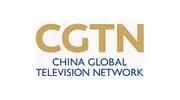
CGTN
CGTN's Rachelle Akuffo spoke with David Ding, assistant professor and director of the Healthcare Services Management Masters program at Rutgers University, about the shortage of medical supplies amid COVID-19 and its impact on the safety of health workers.

Fox News Channel
And as the country’s supply chain faces threats by the effects of the pandemic has had on daily life, truckers are a vital part of keeping the flow of goods delivered on time.
“There's still enough for demand, even though demand is added at a volatile level,” John John Impellizzeri, a professor of supply chain management at Rutgers-Newark’s business school, said to Fox News. “So I think there's good news around this. Companies have prepared themselves.”
“And I think that will continue to get better even. When the demand starts ramping up supply, the supply chains can ramp up,” he said.
“There's still enough for demand, even though demand is added at a volatile level,” John John Impellizzeri, a professor of supply chain management at Rutgers-Newark’s business school, said to Fox News. “So I think there's good news around this. Companies have prepared themselves.”
“And I think that will continue to get better even. When the demand starts ramping up supply, the supply chains can ramp up,” he said.

Credit Donkey
CreditDonkey assembled a panel of industry experts to answer readers' most pressing questions:
What should people look for in a checking account?
Is it best to choose an account without any extra fees?
Between online and brick-and-mortar banks: Is one superior to the other?
Here's what they said:
John Longo
Professor of Finance at Rutgers Business School
What should people look for in a checking account?
Perhaps the two most important factors are the fees, if any, and the interest you may earn on deposits. Today, interest rates are close to zero, but there are many no-fee checking accounts out there. Often the bank will attempt to sell you other services or push you towards their online banking solution, which has lower administration costs for them.
What should people look for in a checking account?
Is it best to choose an account without any extra fees?
Between online and brick-and-mortar banks: Is one superior to the other?
Here's what they said:
John Longo
Professor of Finance at Rutgers Business School
What should people look for in a checking account?
Perhaps the two most important factors are the fees, if any, and the interest you may earn on deposits. Today, interest rates are close to zero, but there are many no-fee checking accounts out there. Often the bank will attempt to sell you other services or push you towards their online banking solution, which has lower administration costs for them.

Rutgers Today
Working online changes our interactions, relationships and decisions, according to Terri Kurtzberg, an associate professor at Rutgers Business School and author of Virtual Teams: Mastering Communication and Collaboration in the Digital Age.
“Leaders and employees may unintentionally act in more self-serving ways, sound more negative to each other, trust each other less, and do and say less to connect with others,” she says.
With millions of teams moving online amidst the COVID-19 pandemic, Kurtzberg shares best practices for employees working together remotely.
“Leaders and employees may unintentionally act in more self-serving ways, sound more negative to each other, trust each other less, and do and say less to connect with others,” she says.
With millions of teams moving online amidst the COVID-19 pandemic, Kurtzberg shares best practices for employees working together remotely.

NJ.com
In the last two weeks, the COVID-19 pandemic has moved from a foreign news story to a palpable reality in neighborhoods throughout our nation. Faced with this calamity, efforts are being made on a war footing, at every level, to control its spread through a variety of measures, such as ramping up testing, curfews, stay-in-place orders and voluntary social distancing. Despite these efforts, the fear in society has escalated, driven by the uncertainty of the timeline and impact of this crisis.
Confronted with the challenge of finding an implementable, time-bound solution, we have derived an action plan using the well-tested methodology called the Theory of Constraints. Applying this approach, our analysis has shown that the right goal is to stop the pandemic, not just slow it down.
Confronted with the challenge of finding an implementable, time-bound solution, we have derived an action plan using the well-tested methodology called the Theory of Constraints. Applying this approach, our analysis has shown that the right goal is to stop the pandemic, not just slow it down.

The Boston Globe
As Congress closed in on a $2 trillion package meant to keep the economy afloat, we asked some leading economists for their prescriptions to stave off economic ruin. Here are their responses:
Washington, thank goodness, has woken up to the severity of the situation. The Federal Reserve slashed interest rates to zero and has taken several steps to ensure “the flow of credit to households and businesses.” Democrats and Republicans negotiated a stimulus bill to include checks for individuals, as much as $300 billion in emergency loans for small businesses, support for paid sick leave, and aid to state and local governments.
But this won’t be enough.
The economy needs a three-month timeout to flatten the infection curve of COVID-19. This is why we have government institutions to ensure economic stability. They must step up and be quick, aggressive, and creative.
— Julia Coronado, former Fed economist, President of MacroPolicy Perspectives and professor of finance at University of Texas at Austin, and Morris Davis, former Fed economist, Paul V. Profeta Chair of Real Estate at the Rutgers Business School.
Washington, thank goodness, has woken up to the severity of the situation. The Federal Reserve slashed interest rates to zero and has taken several steps to ensure “the flow of credit to households and businesses.” Democrats and Republicans negotiated a stimulus bill to include checks for individuals, as much as $300 billion in emergency loans for small businesses, support for paid sick leave, and aid to state and local governments.
But this won’t be enough.
The economy needs a three-month timeout to flatten the infection curve of COVID-19. This is why we have government institutions to ensure economic stability. They must step up and be quick, aggressive, and creative.
— Julia Coronado, former Fed economist, President of MacroPolicy Perspectives and professor of finance at University of Texas at Austin, and Morris Davis, former Fed economist, Paul V. Profeta Chair of Real Estate at the Rutgers Business School.

ABC News
Denis Hamilton, an assistant professor of professional practice in management and global business at Rutgers Business School, said the goal of any business is to survive. When organizations are losing money because of a crisis, they are forced to reduce the work force or cut salaries.
Hamilton said franchises can be hurt if they are forced to keep up payments negotiated through collective bargaining. It's a problem that might force labor and management to return to the table.
“I would think a lot of sports teams don't furlough administrative people or mangers or coaches,” Hamilton said. “I might be wrong about it. My guess is they can probably carry those people for a long time. I think it's those people who are indirectly dependent on events occurring are those who are adversely affected.”
Hamilton said franchises can be hurt if they are forced to keep up payments negotiated through collective bargaining. It's a problem that might force labor and management to return to the table.
“I would think a lot of sports teams don't furlough administrative people or mangers or coaches,” Hamilton said. “I might be wrong about it. My guess is they can probably carry those people for a long time. I think it's those people who are indirectly dependent on events occurring are those who are adversely affected.”

American Express
While the ultimate human and economic cost of the coronavirus pandemic is still unknown, business owners are already seeing significant supply chain impacts. Many of these issues are new to even the most veteran business people. However, supply chain experts say there are steps businesses can explore to manage supply chain disruptions.
The best move a business owner can make right now is to communicate with supply chain partners, says David Dreyfus, assistant professor of supply chain management at Rutgers Business School in Newark, New Jersey.
“I recommend people start calling key suppliers right away and asking them if they need help and what that help looks like,” Dreyfus says. “Get an idea of whether your supply is actually going to be arriving as expected. If you have unusual point-of-sale orders or customer demands, call your key supplies and let them know about this.”
The best move a business owner can make right now is to communicate with supply chain partners, says David Dreyfus, assistant professor of supply chain management at Rutgers Business School in Newark, New Jersey.
“I recommend people start calling key suppliers right away and asking them if they need help and what that help looks like,” Dreyfus says. “Get an idea of whether your supply is actually going to be arriving as expected. If you have unusual point-of-sale orders or customer demands, call your key supplies and let them know about this.”
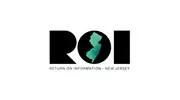
ROI
For New Jerseyans taking blood pressure medications, antibiotics and treatments for rheumatoid arthritis, the breakdown in supply chain management for medical ingredients produced in China is a scary thing to ponder.
Fortunately, it’s not as bad as some think.
At least that’s the view of Bill McLaury, a former pharma executive who is now an associate professor of professional practice at the Rutgers Business School.
McLaury, who specializes in supply chain management studies, particularly as it relates to pharmaceuticals, was executive director of pharma supply chain for 30 years at East Hanover-based Novartis before retiring in 2014 to become a professor. He said relying on third-party manufacturers of active ingredients in medicine is nothing new.
Fortunately, it’s not as bad as some think.
At least that’s the view of Bill McLaury, a former pharma executive who is now an associate professor of professional practice at the Rutgers Business School.
McLaury, who specializes in supply chain management studies, particularly as it relates to pharmaceuticals, was executive director of pharma supply chain for 30 years at East Hanover-based Novartis before retiring in 2014 to become a professor. He said relying on third-party manufacturers of active ingredients in medicine is nothing new.

Rutgers Today
Rutgers Business School’s Center for Urban Entrepreneurship and Economic Development is used to nurturing small business owners. Now, with hundreds of enterprises they helped to grow – and many more across New Jersey and the region – facing huge losses as a result of the coronavirus pandemic, the center will hold a workshop-styled webinar on Friday, March 27, to share ideas for how small business owners can navigate and try to survive the crisis.
In a short interview, Lyneir Richardson, the executive director of The Center for Urban Entrepreneurship and Economic Development, explains what the webinar will offer and what’s in store for small business owners.
In a short interview, Lyneir Richardson, the executive director of The Center for Urban Entrepreneurship and Economic Development, explains what the webinar will offer and what’s in store for small business owners.

Bloomberg Tax
This is a weekend roundup of Bloomberg Tax Insights, which are written by practitioners featuring expert analysis on current issues in tax practice and policy.
The government’s wins and losses in recent transfer pricing litigation highlight what arguments are working for taxpayers. Harvey Poniachek of Rutgers Business School sees the generally unfavorable results for the government as motivating regulatory changes that are designed to provide greater clarity in intercompany pricing practices and reduce controversy between taxpayers and the IRS.
The government’s wins and losses in recent transfer pricing litigation highlight what arguments are working for taxpayers. Harvey Poniachek of Rutgers Business School sees the generally unfavorable results for the government as motivating regulatory changes that are designed to provide greater clarity in intercompany pricing practices and reduce controversy between taxpayers and the IRS.

Real Estate NJ
For an industry in which the numbers truly do matter, the leaders of the Rutgers Center for Real Estate can point with pride to the program’s growth over the past five years.
“Does the growth come from the latent interest in real estate? Absolutely. Kids are getting real estate jobs and they want training for it,” said Morris A. Davis, the center’s academic director and the Paul V. Profeta chair of Real Estate at Rutgers Business School. “Does the demand come from our approach to teaching real estate? Yes, the students understand that they’re being taught by some of the top practitioners in the state.
“And then does the demand come from the way that we invest in students? And the answer is absolutely yes. The students know we’re unlike most places in Rutgers.”
“Does the growth come from the latent interest in real estate? Absolutely. Kids are getting real estate jobs and they want training for it,” said Morris A. Davis, the center’s academic director and the Paul V. Profeta chair of Real Estate at Rutgers Business School. “Does the demand come from our approach to teaching real estate? Yes, the students understand that they’re being taught by some of the top practitioners in the state.
“And then does the demand come from the way that we invest in students? And the answer is absolutely yes. The students know we’re unlike most places in Rutgers.”

Bloomberg Tax
The government’s wins and losses in recent transfer pricing litigation highlight what arguments are working for taxpayers. Harvey Poniachek of Rutgers Business School sees the generally unfavorable results for the government as motivating regulatory changes that are designed to provide greater clarity in the intercompany pricing practices and reduce controversy between taxpayers and the IRS.
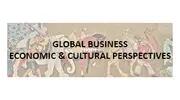
GLOBAL BUSINESS - ECONOMIC & CULTURAL PERSPECTIVES
Around the world, governments are reacting to the spread of the coronavirus by recommending, or forcing, the closure of schools, restaurants, and travel. By having the population remain at home, the much-reduced human-to-human contact will slow down the spread of the virus.
The underlying idea as seen in the figure below is that a nation has only so many hospital beds, doctors, and medical facilities, and can – at one time – handle only so many cases.
The excruciating dilemma for governments is that by “flattening the curve,” they may be prolonging the number of months the pandemic lasts. We really do not know, but the longer it lasts, the longer the duration of the global recession – with an increase in the horrendous financial (and health) consequences that a longer recession would entail.
The underlying idea as seen in the figure below is that a nation has only so many hospital beds, doctors, and medical facilities, and can – at one time – handle only so many cases.
The excruciating dilemma for governments is that by “flattening the curve,” they may be prolonging the number of months the pandemic lasts. We really do not know, but the longer it lasts, the longer the duration of the global recession – with an increase in the horrendous financial (and health) consequences that a longer recession would entail.

The Harvard Crimson
The Harvard Crimson, COVID-19 Leaves Harvard in ‘Grave’ Financial Situation, Experts Say, John Longo
The novel coronavirus pandemic has nearly emptied Harvard’s campus, sending students and faculty home for the remainder of the semester. It has also plunged the world into what Rutgers Business School professor John Longo called “the most serious financial crisis since the Great Recession and perhaps the Great Depression.”
“Huge swaths of the economy have been shut down with no clear sign that the bottom is near,” Longo wrote in an email to The Crimson. “Financial markets are in a state of panic, despite attempts by the Federal Reserve and the federal government to stem the decline.”
Experts like Longo say that the impact of coronavirus on the global financial sector presents risks to the University — namely, through its endowment.
“Huge swaths of the economy have been shut down with no clear sign that the bottom is near,” Longo wrote in an email to The Crimson. “Financial markets are in a state of panic, despite attempts by the Federal Reserve and the federal government to stem the decline.”
Experts like Longo say that the impact of coronavirus on the global financial sector presents risks to the University — namely, through its endowment.

NJ.com
Owners of new restaurants should have enough money to cover three to six months of losses as they build their customers, according to Lyneir Richardson, who heads Rutgers University’s Center for Urban Entrepreneurship and Economic Development in Newark.
But Richardson said many have a thinner cushion.
Every week matters, both for new businesses and those already established in their communities.
“My sense is that 50% of small business owners do not have two months of working capital,” Richardson said. “Most small businesses and restaurant owners are living the proverbial paycheck to paycheck or payable to receivable.”
But Richardson said many have a thinner cushion.
Every week matters, both for new businesses and those already established in their communities.
“My sense is that 50% of small business owners do not have two months of working capital,” Richardson said. “Most small businesses and restaurant owners are living the proverbial paycheck to paycheck or payable to receivable.”
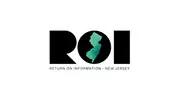
ROI
In an effort to bring digital convenience to the school (and not a response to the coronavirus), Rutgers Business School said on Monday students in its master’s taxation program have the option to attending class remotely, according to program director Jay Soled.
Students will be able to connect to class using WebEx, a video conferencing tool, if they cannot attend physically. Videos will also be made available of the entire class on Blackboard, a web-based learning tool.
I’ve found that some students perform better if they have a chance to re-listen to classes,” Soled said. “From a pedagogical point of view, it makes a lot of sense.”
Students will be able to connect to class using WebEx, a video conferencing tool, if they cannot attend physically. Videos will also be made available of the entire class on Blackboard, a web-based learning tool.
I’ve found that some students perform better if they have a chance to re-listen to classes,” Soled said. “From a pedagogical point of view, it makes a lot of sense.”

Accounting Web
This column, recently posted in the Pennsylvania CPA Journal, focuses on a particular area of automation that those entering the profession or looking to learn more to keep pace in their current line of work need to be aware of: robotic process automation.
What Is RPA? Gartner Inc. defines RPA software as tools “designed to mimic the same ‘manual’ paths taken by humans by using a combination of user interface interaction or descriptor technologies.” Rutgers University professors Kevin Moffitt, Andrea Rozario, and Miklos Vasarhelyi note that RPA robots (bots) can be used to open emails and attachments, identify relevant information, enter data into ERP systems, and compose and send emails to specified parties.
What Is RPA? Gartner Inc. defines RPA software as tools “designed to mimic the same ‘manual’ paths taken by humans by using a combination of user interface interaction or descriptor technologies.” Rutgers University professors Kevin Moffitt, Andrea Rozario, and Miklos Vasarhelyi note that RPA robots (bots) can be used to open emails and attachments, identify relevant information, enter data into ERP systems, and compose and send emails to specified parties.

Times Union
Since last June, America has been hearing Democratic presidential candidates agree on the need to increase taxes on the ultra-wealthy and corporations. And it's not only Democrats: Recent polling shows the idea is popular for a vast majority of Americans, Democrats and Republicans alike.
Actions at the federal level are not enough. States need to take action, especially New York. It is one of the wealthiest and most progressive states, yet leads the nation in income inequality: New York's inequality index is on par with Honduras and Colombia. If New York were a country, it would be among the 10 most unequal countries in the world.
Actions at the federal level are not enough. States need to take action, especially New York. It is one of the wealthiest and most progressive states, yet leads the nation in income inequality: New York's inequality index is on par with Honduras and Colombia. If New York were a country, it would be among the 10 most unequal countries in the world.

New Jersey Monthly
Kevin Lyons, an associate professor of professional practice at Rutgers Business School, takes trash very seriously. What else would you expect from a dedicated researcher whose interests include supply-chain management, environmental economics, and alternative product and packaging composite development? Lyons invented the discipline known as supply-chain archaeology, which involves rifling through our collective garbage to determine what our disposable economy most frequently disposes of. Given that much of our throwaways end up either decomposing into methane—the most potent of greenhouse gases—or migrating into our waterways and polluting our oceans, Lyons is particularly interested in coming up with ways to minimize the detritus of modern life.